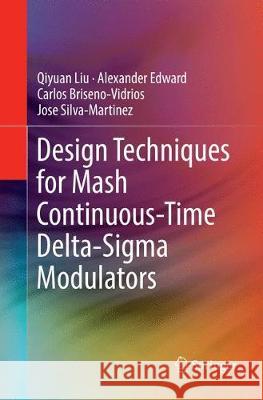Design Techniques for MASH Continuous-Time Delta-SIGMA Modulators » książka
topmenu
Design Techniques for MASH Continuous-Time Delta-SIGMA Modulators
ISBN-13: 9783030084035 / Angielski / Miękka / 2018 / 208 str.
Kategorie:
Kategorie BISAC:
Wydawca:
Springer
Język:
Angielski
ISBN-13:
9783030084035
Rok wydania:
2018
Wydanie:
Softcover Repri
Ilość stron:
208
Waga:
0.32 kg
Wymiary:
23.37 x 21.34 x 1.02
Oprawa:
Miękka
Wolumenów:
01











